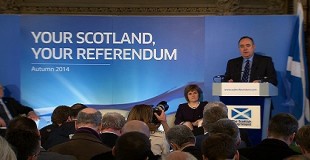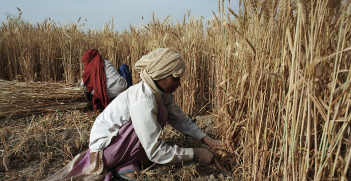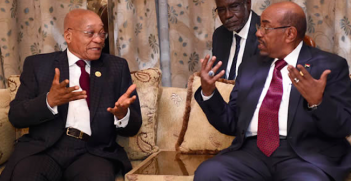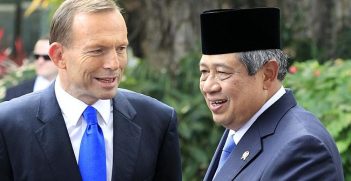Scot Free: the Implications of Scotland’s 2014 Independence Referendum

Scotland’s independence referendum—pursued by the political elite rather than driven by a grassroots movement—raises questions about the viability of secession.
The wait is almost over. The long promised and highly anticipated Scottish independence referendum is set to take place on 18 September 2014. While the referendum’s driving force — the Scottish National Party (SNP) — are confident the vote will go their way and lead to an independent Scotland, observers both within and outside of the United Kingdom (UK) are less certain. More still are unconvinced that secession is a positive move.
The SNP, led by charismatic and talented orator Alexander Salmond, is working hard to convince voters that Scotland will prosper as an independent nation. They claim that as the sole beneficiaries of revenue from Scotland’s vast oil reserves (which are currently shared with the rest of the UK) they could improve public services and address some of Scotland’s basic development challenges. They further predict an independent Scotland thriving in the international community, establishing its own embassies, and joining international institutions such as the EU and NATO. Scotland’s desire for independence is also cultural: many Scots genuinely believe that their unique values, ideals and culture set them overwhelmingly apart from the rest of the UK.
However, a poll taken last November putting the unionists nine points ahead suggests that not all Scots agree. Unionists believe that Scotland can maintain its cultural, social and political identity without seceding. They also argue that the SNP’s vision of a highly affluent independent Scotland is mistakenly based on the assumption that its claims to 90 per cent of North Sea oil and gas will not be contested by England, while London believes it would retain up to a third of the fields. The SNP’s assurance that Scotland would automatically qualify for EU membership and retain the British pound also remains to be tested. Not only would London have a veto over both, but European Commission President José Manuel Barroso insists that any new state would have to apply to become a member.
Nor would Scotland’s intention to join NATO be without obstacles. Salmond believes that the SNP’s historic reluctance to join the organisation (based on their staunch opposition to nuclear weapons) has severely undermined the credibility of their defence policy in the debate over separation. He also believes that an independent Scotland can safely join NATO without compromising its anti-nuclear credentials. However, former NATO Secretary General Lord Robertson of Port Ellen has spoken out about this contradiction, stating that all members must sign up to NATO’s Strategic Concept, which confirms they remain a nuclear alliance.
The breakup of the UK may also stir Europe’s fifty other active separatist movements, especially in an era of unpopular austerity programs and rising voter dissatisfaction with central government policies. Foreign Correspondent Paul Ames, who has written widely on the subject of separatism, believes that “separatists around Europe will be looking at the Scottish example and wondering if they can add the likes of Italy, Spain and Belgium to the list of Europe’s forgotten nations.”
Scotland’s quest for independence highlights another interesting feature of nationalism: that secession movements don’t always emerge from a grassroots level, but are sometimes actively encouraged by political elites. In The Scottish Play Charles King points out that there is a fundamental difference between a nationalist movement that seeks its own country and a nationalist party that seeks a country that will keep electing it. The SNP has structured the debate over Scottish independence in ways that make it difficult for voters to distinguish between the two.
For example, since early polls revealed a lower than expected level of public support for independence, the SNP has relied on Salmond’s skill as an inspirational public speaker to “tap into a centuries-old rivalry with England.” Moreover, in order to harness the Scots’ famous national pride, the SNP has timed the 2014 referendum to coincide with the 700th anniversary of the Battle of Bannockburn, a famous battle where Scottish forces led by Robert the Bruce defeated English invaders. Last year the SNP also fought (and won) a battle with London to allow Scotland to lower the voting age for the referendum to 16, as the SNP believes young people are more likely to vote in favor of independence.
Whether Scotland would benefit from separation in the long run is unclear, but at least for now, polls show that most Scots are not willing to take the risk. Culturally, politically and ideologically it is likely that Scotland will continue to diverge from the rest of the UK. Voices chanting that Scotland’s oil should be for Scotland will continue to make themselves heard and separatist sentiments within Europe and further afield show no signs of abating. In the end, even with a win in this year’s referendum, the unionists may still loose the fight for Scotland’s future.
Katherine Gordon has a Master’s degree from the Centre for International Security Studies at the University of Sydney. A longer version of this article appears in Emerging Scholars 2013.





